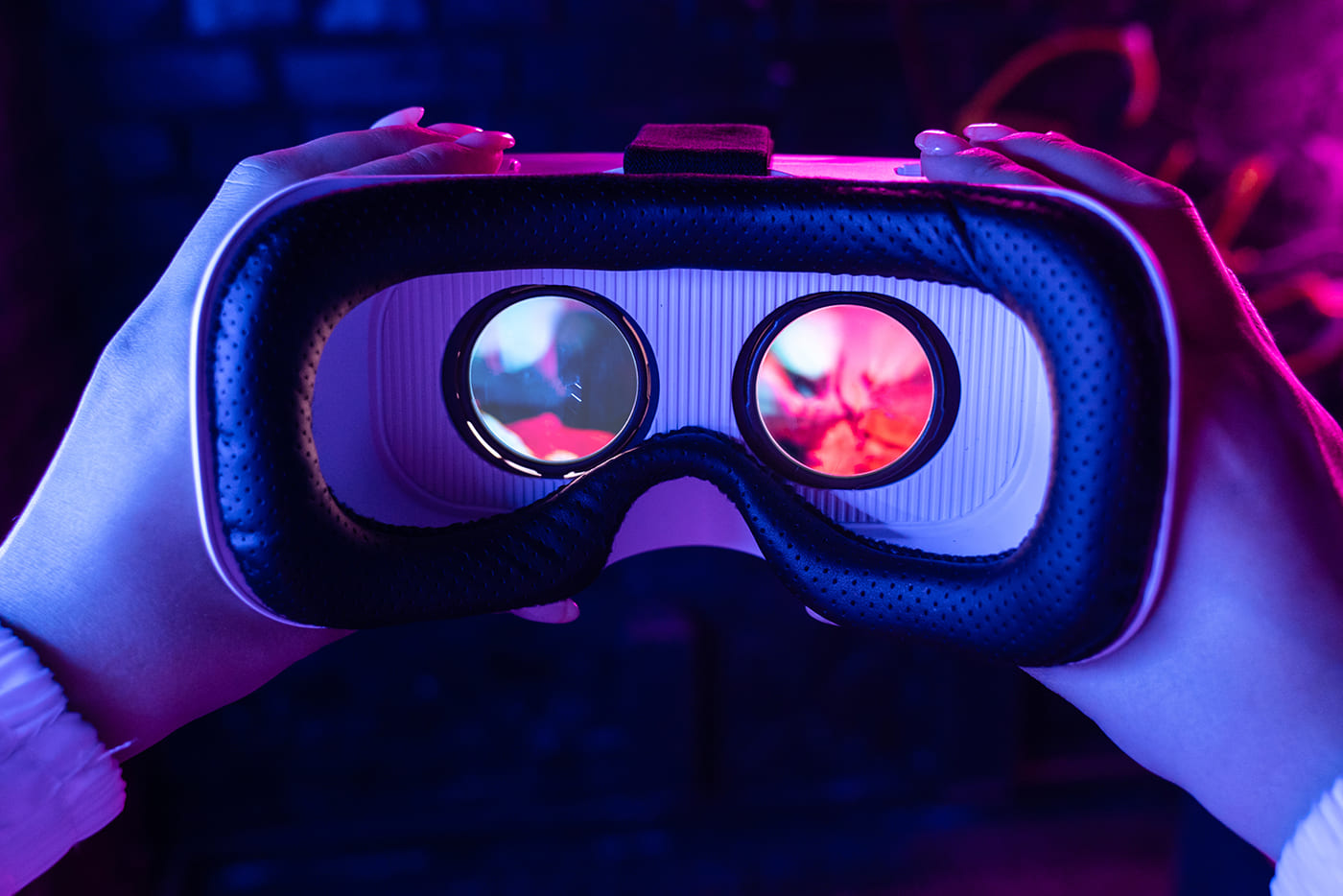Can Life Be Meaningful In The Metaverse?
28 June 2022
Virtual Reality – by definition, it isn’t real, right?
So if it’s true that we will find ourselves increasingly living our lives in the virtual worlds and environments of the metaverse, will this end up cheapening what it means to be human?

Is it possible that we can live meaningful and fulfilling lives as digital avatars? Many parents of teenagers will know it's entirely possible for human beings to spend most of their lives plugged into digital devices and social media. Imagine how much more addictive it will be when rather than smartphone screens filled with carefully posed selfies and vidoes, the virtual worlds at our fingertips will be fully 3D, immersive environments that are indistinguishable from reality, and capable of taking any form we can imagine.
It might sound fantastic, but a 2020 Ericsson survey found that 70% of respondents believe we will be able to create VR worlds that our brains can’t distinguish from real worlds by 2030.
We have already seen people getting married in the metaverse. It’s also been estimated that, by 2035, more than half of romantic relationships will start online – through dating apps or whatever new methods of digital matchmaking emerge as the digital domain continues to evolve. It’s clear that we are not instinctively averse to experiencing major life events virtually. Is this a trend that will continue to grow, as has happened with the encroachment of the internet into all other aspects of life? Or will there be some form of kickback against it - some 21st-century equivalent of the Luddite rebels who protested against the spread of mechanized factories in 19th century England?
Companies like Meta (Formerly Facebook) and Microsoft are definitely optimistic about the metaverse. They are throwing huge amounts of money into making what we used to call “cyberspace” – although that term seems quaint now – as tempting as possible. Brands are also already on board – from business behemoths like McDonald's, Disney, Gucci, and Coca Cola, to entertainment icons like Snoop Dogg and Paris Hilton, everyone is racing to carve out a space in the metaverse where they will be able to connect with - and sell to us -in new ways.
So, there’s plenty in it for celebrities and corporations – but what about us? Well, for me, the true value to be found in the metaverse isn't necessarily in the virtual elements of these worlds – the one-of-a-kind NFT sneakers or home décor that are sold by Nike or Gucci for us to decorate our avatars and virtual homes. It’s more likely to be found in the “real” elements – elements that will inevitably arise due to the fact that we share these worlds with other living, breathing human beings.
In other words, there’s no reason to think that a conversation or other interaction that takes place between two people is necessarily any less “meaningful” simply because it takes place in a virtual environment. As we can tell by the vast number of people who are starting real-life relationships based on connections forged online, even relatively unsophisticated interfaces like dating apps and chatrooms provide enough connectivity for friendships and more to blossom. It makes sense that in a VR environment – possibly one where we are represented by lifelike avatars with our own physical characteristics – bonds would form even more readily.
And what about experiences? We might think of a real-life experience as “meaningful” if it provides an emotional reaction, such as fun or laughter, or if we learn something from it – either in an educational sense or if it teaches us something about ourselves or other people.
If we are really going to have VR worlds that are indistinguishable from real ones, it stands to reason that they will be able to provide us with experiences that are meaningful in this way. Google Earth, for example, already allows us to put on a VR headset and view virtually any part of the planet in a 360-degree, first-person perspective. It seems perfectly feasible that in a few years, we will be able to share these environments with other people and explore them pretty much as if we are actually there. With that in mind, it seems likely that we will at least experience some of the sense of awe that comes with standing in front of the Taj Mahal or some of the fear that would accompany leaping head-first over the edge of the Niagara Falls. In this regard, it's likely we could consider such experiences meaningful.
One thing we have to consider – meaningful experiences don’t always have to be positive, of course. There has already been a good amount of very important discussion around the potential for harm to come to us in VR environments. For example, several people have reported unpleasant experiences with sexual harassment and racial abuse in VR environments. Understandably, it is often reported that the unpleasantness and sense of violation are magnified beyond what is felt by victims of similar abuse in less immersive environments, such as chatrooms or social media, due to the personal nature of connections made in VR.
Technology companies seem to be responding to this heightened level of threat posed to their users – Meta, for example, has implemented panic controls that let users immediately warp to a safe area or put up a protective shield that prevents other people from approaching or touching them. This seems to imply that they, at least, believe that experiences in the metaverse can be meaningful.
Putting aside, for the moment, those impossible-to-verify arguments that we are already living inside a virtual reality simulation, it seems clear to me that we will not find it difficult to find meaning in the virtual worlds. As long as, just as is the case with actual reality, they provide us with the ability to make connections with other people and share experiences with those we meet there.
Related Articles
2025’s Tech Forecast: The Consumer Innovations That Will Matter Most
Consumer technology covers all of the tech we buy to make our lives more convenient, productive or fun.[...]
7 Healthcare Trends That Will Transform Medicine In 2025
Healthcare has evolved dramatically in recent years, with technology driving countless new opportunities, just as demographic and societal factors have created new challenges.[...]
The Simple ChatGPT Trick That Will Transform Your Business AI Interactions
I believe ChatGPT and other generative AI tools can help pretty much any business.[...]
The Third Wave Of AI Is Here: Why Agentic AI Will Transform The Way We Work
The chess pieces of artificial intelligence are being dramatically rearranged. While previous iterations of AI focused on making predictions or generating content, we're now witnessing the emergence of something far more sophisticated: AI agents that can independently perform complex tasks and make decisions.[...]
How Generative AI Will Change Jobs In Cybersecurity
Ensuring robust cybersecurity measures are in place is more important than ever when it comes to protecting organizations and even governments and nations from digital threats.[...]
The 10 Most Important Banking And Financial Technology Trends That Will Shape 2025
As technological disruption and economic uncertainty continue to reshape the financial landscape, alongside dramatic shifts in consumer behavior and regulatory requirements, 2025 promises to be both challenging and opportunistic for banking and financial services.[...]
Sign up to Stay in Touch!
Bernard Marr is a world-renowned futurist, influencer and thought leader in the fields of business and technology, with a passion for using technology for the good of humanity.
He is a best-selling author of over 20 books, writes a regular column for Forbes and advises and coaches many of the world’s best-known organisations.
He has a combined following of 4 million people across his social media channels and newsletters and was ranked by LinkedIn as one of the top 5 business influencers in the world.
Bernard’s latest book is ‘Generative AI in Practice’.










Social Media